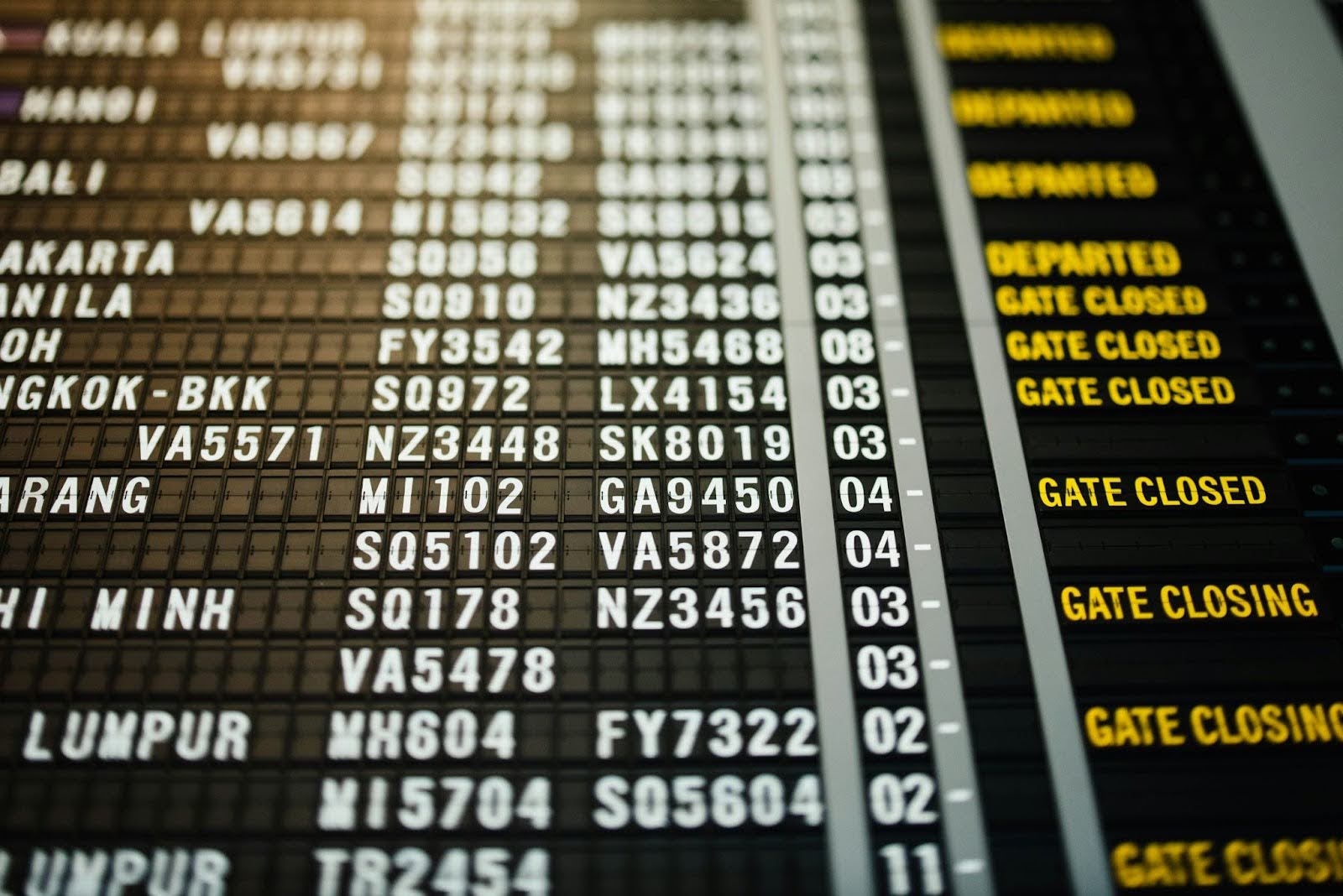

Ah, the joys of air travel – the thrill of soaring through the sky, the excitement of new destinations, and, of course, the occasional… well, “unexpected surprises.” If you’re a seasoned jet-setter like us, you know that delays, cancellations, and lost baggage come with the territory. We’ve traveled over 1,000,000 miles as a family, mostly by air, and we’ve had our share of canceled flights, delayed flights, lost flights, and more. It can be incredibly frustrating and difficult, especially with kids in tow. Sometimes these mishaps are unavoidable, but there is something you can do about it!
Here’s some good news: did you know you now have the right to be compensated for these travel hiccups in the US?
Now, I know what you’re thinking – “Compensation? For my flight troubles? Yeah, right!” But hang tight, because the US Department of Transportation has implemented some handy new rules. As of October 28, 2024, airlines are required to issue automatic refunds if your flight is canceled or undergoes significant changes. That’s right—no more jumping through hoops to claim what’s rightfully yours!
Europe has been on board with this for a number of years, and we’ve already submitted claims on a severely delayed flight where we waited over eight hours in the airport with five kids (not the most fun thing ever). Thankfully, the US is catching the drift and allowing passengers to claim some reimbursement as well.
*Disclaimer: This post may contain affiliate links. Opinions shared are my own, and I only endorse products I support. By clicking on any of the links below, I may get a small commission if you purchase at absolutely no additional charge to you. I appreciate your support.*
First, you’re entitled to a refund if your flight is canceled or significantly changed and you don’t accept the significantly changed flight, rebook on an alternative flight, or receive alternative compensation. Airlines can no longer decide how long a delay must be before a refund is issued. Under the new rules, the delays covered would be more than three hours for domestic flights and more than six hours for international flights. This includes tickets purchased directly from airlines, travel agents, and third-party sites such as Expedia and Travelocity.
If your precious checked bag goes missing for more than 12 hours on a domestic flight (or 15-30 hours for international), you can get that bag fee back, no questions asked.
But wait, there’s more! Airlines must also reimburse you for any ancillary services you paid for, like Wi-Fi, seat selection, or in-flight entertainment, if they couldn’t provide those due to the delay or cancellation. Talk about a win-win!

One of the benefits of this new rule is airlines can no longer offer a travel voucher — which tends to come with an expiration date — and call it a day. Instead, the refund must be issued in cash or the original form of payment (like a credit card or miles). Airlines can substitute travel vouchers or other forms of compensation if the passenger willingly accepts it.
Airlines must also promptly notify consumers affected by a canceled or significantly changed flight of their right to a refund.

Alright, let’s break this down step-by-step so you know exactly how to navigate the compensation process:
Any passenger whose flight was canceled, significantly delayed, or had their bags delayed on a US domestic or international flight departing from the US.
You’re entitled to a full refund of your ticket price, as well as any fees for optional services you paid for but didn’t receive.
Most airlines have an online form or customer service line to submit your reimbursement request. Be ready to provide your flight details, confirmation numbers, and any relevant documentation.
Hang onto your boarding pass, any receipts for fees paid, and any correspondence with the airline about the disruption. This will be crucial evidence to support your claim.
Airlines have seven business days to issue refunds for credit card purchases and 20 calendar days for other payment methods. So don’t lose hope if it takes a little while – your money is coming!
The key is to be diligent, organized, and persistent. With a little elbow grease, you can navigate the US compensation system and get the refund you deserve. Just think of all the adventures that money could fund!
Sometimes refunds can take even longer (ever tried to claim anything on insurance before?! Think the same here.), so be persistent.

The landscape for flight compensation has shifted significantly, with the US recently adopting new, more passenger-friendly regulations. Let’s take a closer look at how the US rules now stack up against the long-standing EU system:
| Feature | United States | European Union |
| Legal Framework | No comprehensive passenger rights law. Regulations are less stringent. | Governed by EC Regulation 261/2004, a comprehensive passenger rights law. |
| Compensation for Delays | Airlines are required to provide automatic cash refunds for delays over 3 hours (domestic) or 6 hours (international). | Passengers entitled to compensation up to €600 for delays over 3 hours, based on a universal formula. |
| Cancellations | Airlines must refund ticket prices for cancellations. | Airlines must offer rebooking or refund, plus compensation in many cases. |
| Denied Boarding (Overbooking) | Compensation required, but typically lower than EU amounts. | Compensation up to €600, plus rerouting or refund. |
| Scope of Coverage | Primarily covers domestic flights and international flights departing from the US. | Applies to all flights departing from the EU and flights to the EU on EU-based carriers. |
| Maximum Compensation | No set maximum; based on ticket price and delay length when applicable. | Clearly defined, up to €600 depending on flight distance. |
| Extraordinary Circumstances | Similar principle to EU, but with less specific obligations for passenger care. | Airlines are exempt from paying compensation for events beyond their control, but must still provide care. |
The key takeaway? While the US has made significant strides in protecting air passengers, the EU system still offers more comprehensive, standardized, and passenger-friendly compensation schemes.
The good news is that whether you’re flying in the US or the EU, your rights as a passenger have never been stronger. However, the nuances between the two systems mean you’ll need to adjust your approach accordingly.

Friends, the moral of the story is this: no matter where your travels take you, know your rights as a passenger. With a little persistence and the right paperwork, you can turn those travel headaches into funding for your next big adventure.
To ensure you get the compensation you deserve, remember to:
And keep in mind that as part of the new rule, you can expect a “significant change” as:
So next time you’re stuck in an airport, watching your perfectly planned itinerary crumble, remember – there might be a silver lining.
Happy travels, and may your journeys be filled with more magic than delays!
Leslie,
P.S. Don’t forget to check out my previous post on types of travel insurance, and which is best for you. Travel insurance isn’t something you should be traveling without!

Travel Tip: This Charles Schwab Debit Card refunds ALL ATM fees globally! You can save a fortune on foreign fees! How cool is that? Perfect for your next family trip.
Plan your trip to Rome and get some budget-friendly tickets from Booking.com, Skyscanner, Kiwi.com, or Expedia
Find a family-friendly hotel in Rome from Booking.com, Expedia, or Vrbo, (we also love Tripadvisor and Hotels.com)
Discover more of Rome through exciting activities from GetYourGuide, Airbnb Experiences, or Viator
Need to rent a car? Visit Rentalcars.com / EuropCar
Get insured while traveling with World Nomads / SafetyWing
Want to have a photo shoot while traveling? Check out flytographer!
Capture your best travel memories in Rome as we do with a GoPro, Sony camera, or our favorite drones: DJI FPV, Air, and Mini
Check out your travel necessities from a comprehensive list of all the 7Wayfinders Travel Must-Haves. Click Here!
Travel Tip: How To Claim A Flight Compensation In Europe – Follow These 6 Steps
How to Choose the Best Travel Insurance for Your Family
Hot Tips for Buying International Flights for Your Family: 250+ Flights Later
